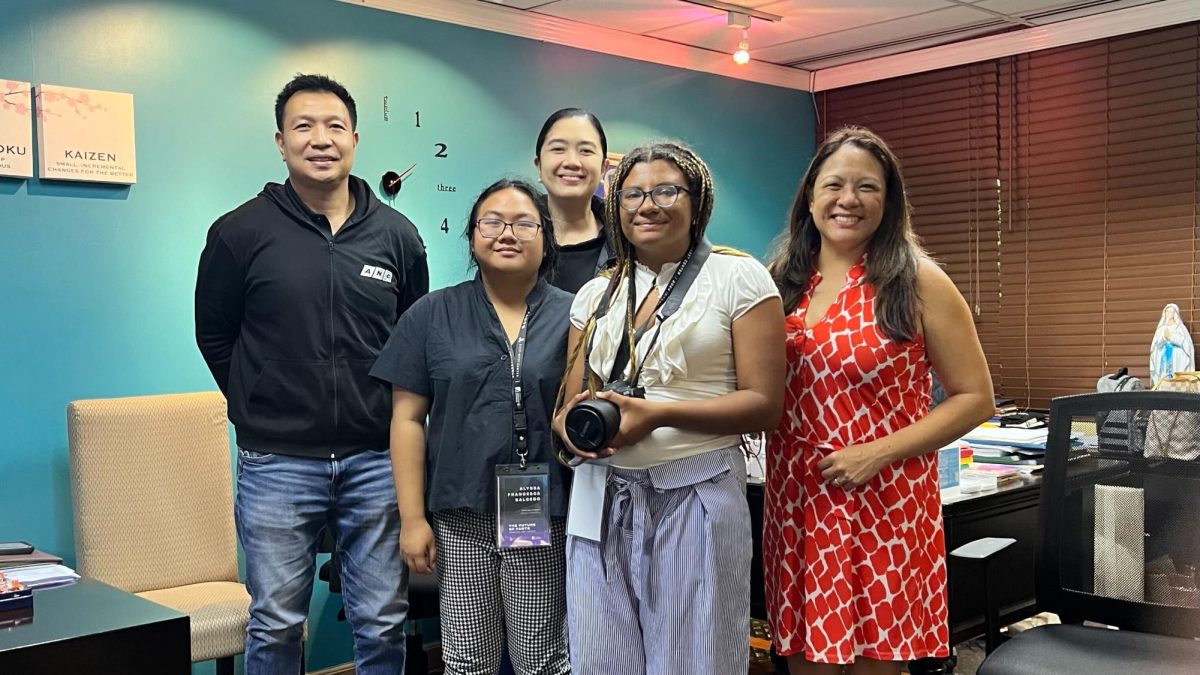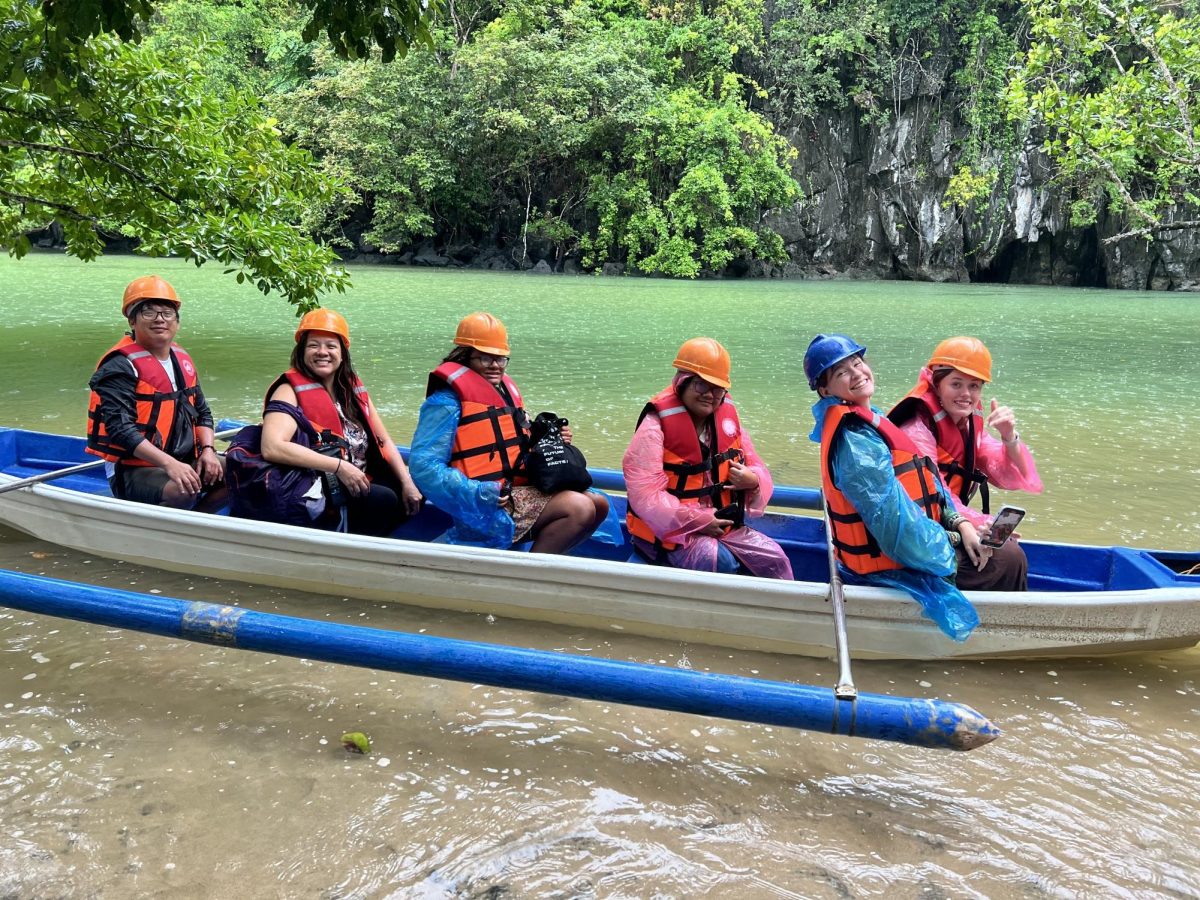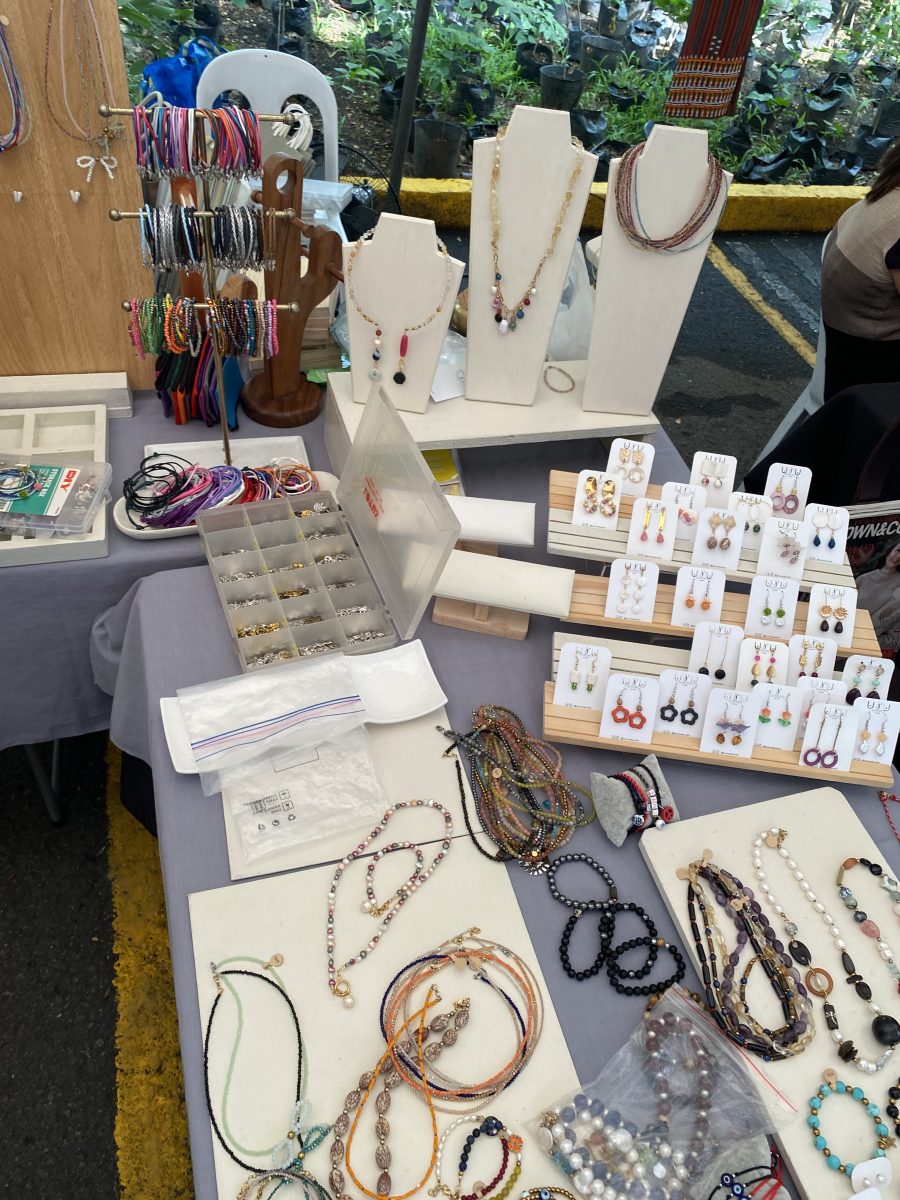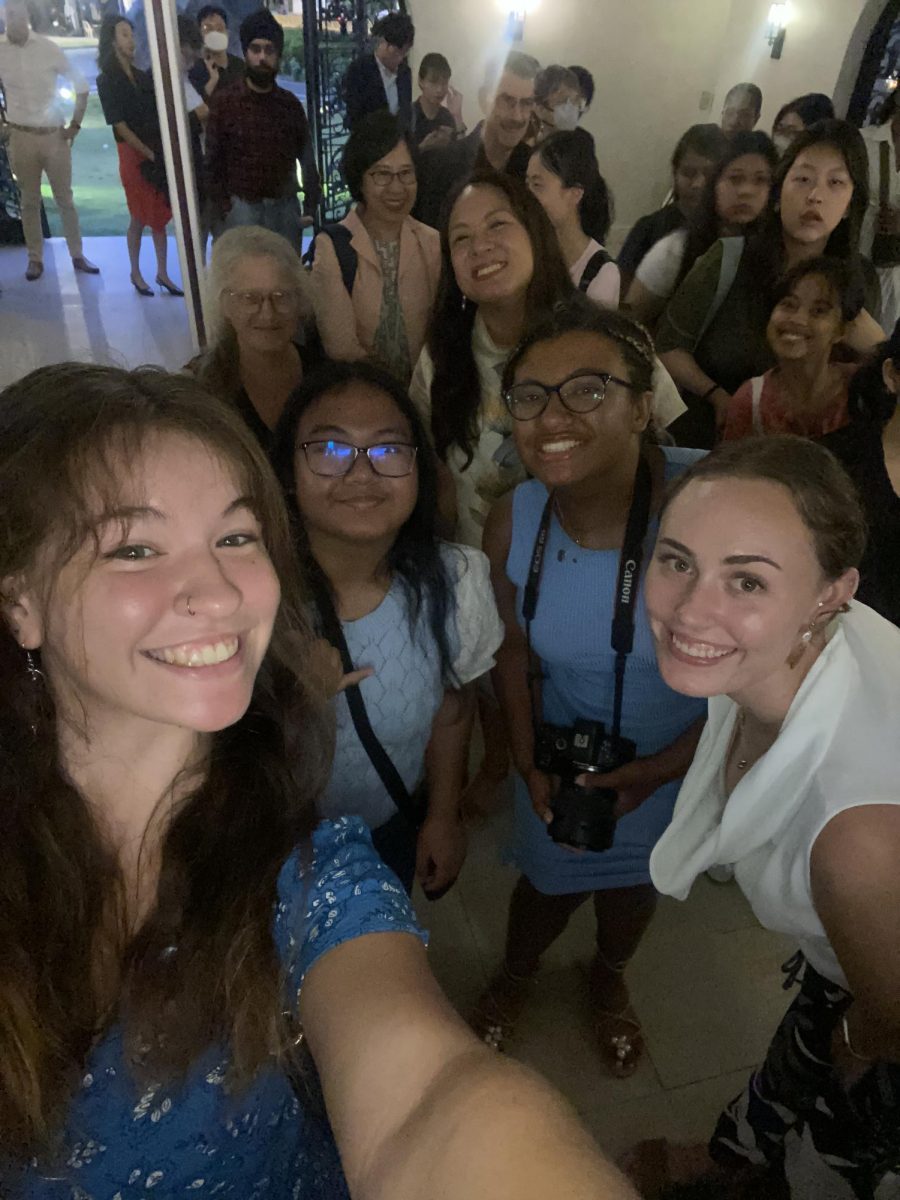For many Filipinos and the Filipino diaspora, ABS-CBN is their go-to source for news and information about their homeland.
The media conglomerate is known for its prime time flagship news program, TV Patrol, as well as TV and radio programs, movies and sports coverage. But on May 5, 2020, during the COVID-19 pandemic, the company was forced to shut down its free broadcasts after lawmakers voted against renewing its license, claiming the company violated terms of its franchise.
It is widely believed that the closure was fueled by the then-Duterte administration’s claims of bias against the broadcaster’s critical reporting of his “War on Drugs.”
While in Manila for the East-West Center International Media Conference, UH journalism students had the opportunity to tour ABS-CBN’s newsroom and studios in Quezon City and meet with news executives and staff.
Former ABS-CBN News Channel (ANC) anchor and UH Manoa journalism adjunct professor Annalisa Burgos led the visit and reunited with some of her former colleagues who remained at the station.
An estimated 11.000 workers lost their jobs due to the shutdown. Some were able to find work at competitors. Those who remained pivoted to digital and found ways to keep creating content by distributing it on other platforms.
Flash forward four years later, ABS-CBN News pushes onward with its digital news efforts, working to build its audience. The company’s iconic television news show, TV Patrol, airs on YouTube, while a short-form version airs as TV Patrol Express.
“YouTube is a great partner of ABS-CBN News, at least in making sure that our content is delivered elsewhere, but sometimes at the expense of our streaming platforms,” said Francis Toral, head of ABS-CBN News.
ABS-CBN’s English news channel ANC now focuses primarily on business news as part of the organization’s digital-focused approach.
“It doesn’t work anymore on digital for a news organization to just be general news. So you will need to have your niche and your topic and your topic of expertise; when you move into digital, it’s all interest based,” said Alvaro Dan “Baroy” Morga, head of ANC.
Despite the challenges, many employees say they remain committed to producing quality journalism and maintaining a free press.
The studio tour included visits to ABS-CBN’s news operations, control rooms, and recording studios. Mānoa Mirror also watched a live broadcast of ANCʻs Business Roadshow, which highlights various Philippine industries, as well as the workers and issues involved.
“I learned a lot from the tour and the importance of journalism within the Philippines,” said Lili Hurd, one of two Mānoa Mirror students who visited the studio.
Lili Hurd and Annalisa Burgos contributed to this report.









